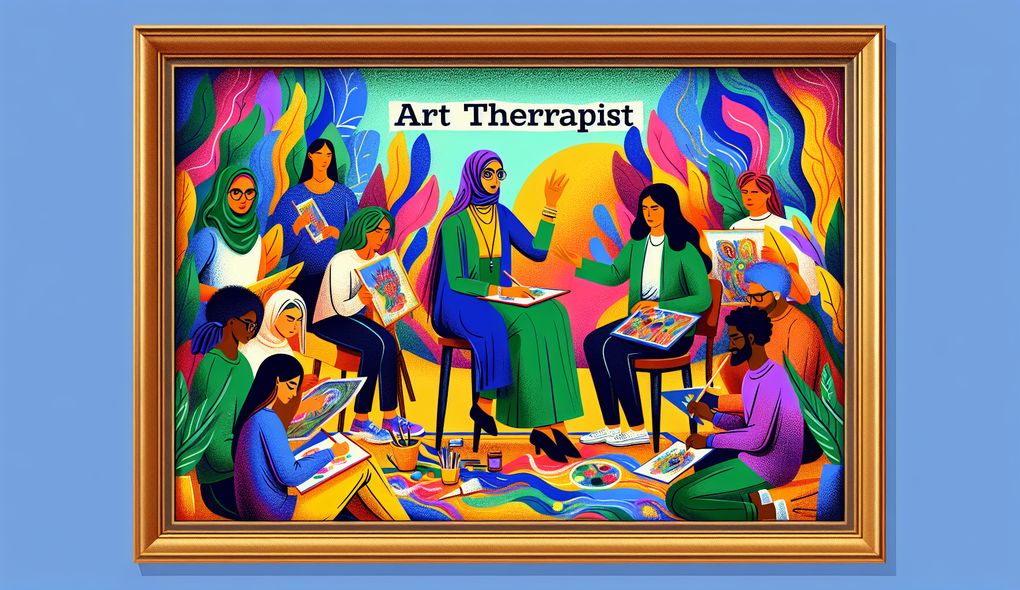Describe a time when you had to advocate for the importance of art therapy in a healthcare setting.
JUNIOR LEVEL

Sample answer to the question:
In a healthcare setting where I worked as an art therapist, I had to advocate for the importance of art therapy by showcasing its benefits to both patients and the healthcare team. I shared success stories of patients who had experienced positive emotional and mental outcomes through art therapy sessions. In addition, I organized workshops and presentations to educate the healthcare team about the effectiveness of art therapy in improving patients' well-being. By highlighting the research and studies supporting art therapy, I was able to gain support and recognition for its importance within the healthcare setting.
Here is a more solid answer:
During my time as an art therapist in a healthcare setting, I actively advocated for the importance of art therapy by utilizing my strong interpersonal and communication skills. I collaborated with patients, healthcare professionals, and administrators to create awareness about the benefits of art therapy. One specific instance was when I organized an art exhibition showcasing the artwork created by patients during therapy sessions. I invited the healthcare team to attend the exhibition, where they had the opportunity to interact with patients and witness the transformative power of art therapy firsthand. Additionally, I conducted workshops and presentations on the effectiveness of art therapy in improving mental well-being and reducing stress. By providing evidence-based research and sharing success stories, I was able to garner support and recognition for art therapy within the healthcare setting.
Why is this a more solid answer?
The solid answer provides specific examples of the candidate advocating for art therapy, such as organizing an art exhibition and conducting workshops. It also showcases the candidate's strong interpersonal and communication skills, as well as their ability to apply art therapy interventions effectively. However, it could still be improved by including more details about the candidate's creativity, empathy, and observational skills, as well as their ability to work independently and as part of a team.
An example of a exceptional answer:
As an art therapist in a healthcare setting, I recognized the importance of advocating for art therapy and took a comprehensive approach to ensure its integration into the treatment plans. I formed a multidisciplinary team consisting of healthcare professionals, artists, and community members to highlight the benefits of art therapy. Together, we developed research projects to demonstrate its impact on patients' emotional, mental, and physical well-being. We conducted case studies and published articles in healthcare journals to share our findings with the broader medical community. Additionally, I established partnerships with local art organizations to provide resources and materials for art therapy sessions, further enhancing the therapeutic experience for patients. Through these collaborative efforts, I successfully advocated for the importance of art therapy and fostered a culture that valued its role in healthcare.
Why is this an exceptional answer?
The exceptional answer goes above and beyond by showcasing the candidate's ability to work with a multidisciplinary team and conduct research projects on art therapy. It also demonstrates their creativity and ability to establish partnerships to enhance the art therapy sessions. This answer aligns well with all the evaluation areas from the job description. However, it can still be improved by providing more specific details about the candidate's empathy, compassion, and organizational skills.
How to prepare for this question:
- Familiarize yourself with the research and studies that demonstrate the effectiveness of art therapy in improving patients' well-being. Be prepared to share this information during interviews.
- Reflect on your past experiences where you have advocated for the importance of art therapy. Think about specific instances, success stories, and the steps you took to gain recognition and support.
- Highlight your strong interpersonal and communication skills during the interview. Provide examples of how you have effectively communicated the benefits of art therapy to various stakeholders.
- Demonstrate your creativity by discussing unique approaches you have taken to showcase the transformative power of art therapy. This could include organizing exhibitions, conducting workshops, or collaborating with other art organizations.
- Emphasize your empathy and compassion for patients by sharing stories of how art therapy has positively impacted their emotional well-being. Discuss your ability to observe and assess client needs to tailor art therapy interventions accordingly.
- Discuss your organizational and documentation skills by explaining how you maintain records of client progress and adjust therapy plans as needed. Highlight your ability to work independently and collaborate with other healthcare professionals.
- Stay up-to-date with current art therapy research and methodologies. Be prepared to discuss any recent developments or trends in the field.
What are interviewers evaluating with this question?
- Interpersonal and communication skills
- Ability to apply art therapy interventions effectively
- Cultural sensitivity and ability to work with diverse populations
- Creativity and artistic ability
- Empathy and compassion for clients
- Strong observational skills and ability to assess client needs
- Excellent organizational and documentation skills
- Ability to work independently and as part of a team

